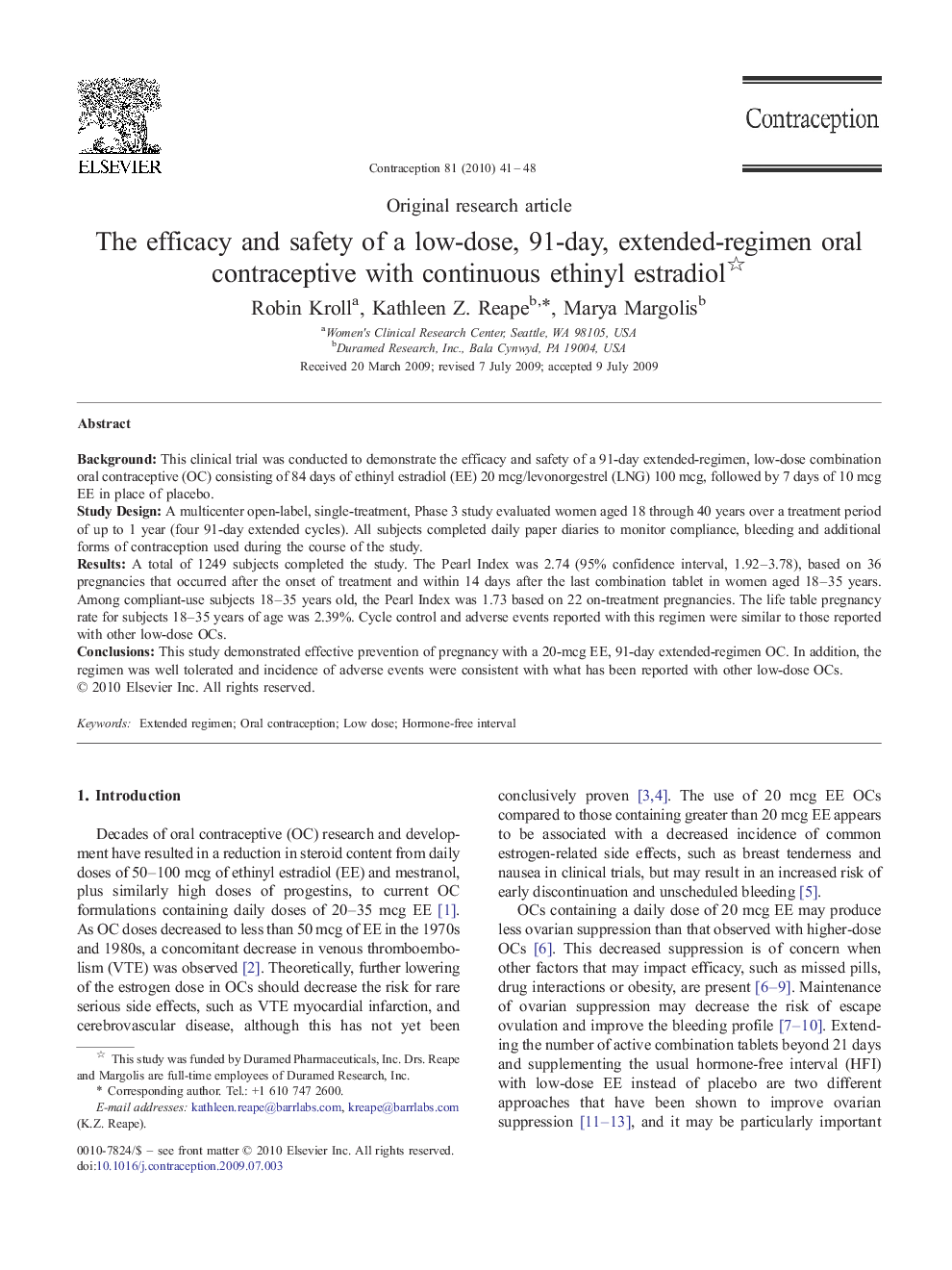| Article ID | Journal | Published Year | Pages | File Type |
|---|---|---|---|---|
| 3915076 | Contraception | 2010 | 8 Pages |
BackgroundThis clinical trial was conducted to demonstrate the efficacy and safety of a 91-day extended-regimen, low-dose combination oral contraceptive (OC) consisting of 84 days of ethinyl estradiol (EE) 20 mcg/levonorgestrel (LNG) 100 mcg, followed by 7 days of 10 mcg EE in place of placebo.Study DesignA multicenter open-label, single-treatment, Phase 3 study evaluated women aged 18 through 40 years over a treatment period of up to 1 year (four 91-day extended cycles). All subjects completed daily paper diaries to monitor compliance, bleeding and additional forms of contraception used during the course of the study.ResultsA total of 1249 subjects completed the study. The Pearl Index was 2.74 (95% confidence interval, 1.92–3.78), based on 36 pregnancies that occurred after the onset of treatment and within 14 days after the last combination tablet in women aged 18–35 years. Among compliant-use subjects 18–35 years old, the Pearl Index was 1.73 based on 22 on-treatment pregnancies. The life table pregnancy rate for subjects 18–35 years of age was 2.39%. Cycle control and adverse events reported with this regimen were similar to those reported with other low-dose OCs.ConclusionsThis study demonstrated effective prevention of pregnancy with a 20-mcg EE, 91-day extended-regimen OC. In addition, the regimen was well tolerated and incidence of adverse events were consistent with what has been reported with other low-dose OCs.
